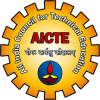|
Sl. No.
|
Name of the Laboratory
|
Lab No
|
Name of the Important equipment
|
Lab Size in sqm
|
|
1
|
Programming in ’C’
|
C123
|
1. LCD Projector
2.CPUModel-Intel Core i3-4GBRAM, 1TB HDD
3.Software package open office, GCC compiler
4.CCTVCamera
5.Internet
6.Uninterrupted power supply 7.AirConditioned
|
110
|
|
2
|
Data Structure using ‘C’
|
C208
|
1. LCD Projector
2.CPU Model-Intel Core i3-4GBRAM, 1TBHDD
3.Softwarepackageopenoffice, GCC compiler
4.CCTVCamera
5.Internet
6.Uninterrupted power supply 7.AirConditioned
|
105
|
|
3
|
Advance Computer Architecture Lab
|
C224
|
1. LCD Projector
2.CPUModel-Intel Core i3-4GBRAM,1TBHDD
3.Softwarepackageopenoffice, GCC compiler
4.CCTVCamera
5.Internet
6.Uninterrupted power supply 7.AirConditioned
|
105
|
|
4
|
Computer Organization and Architecture Lab
|
C224
|
1.LCD Projector
2. SMPS Trainer Kit, Printer
3.Software package open office, GCC compiler
4. Printer Trainer Kit
5.CPU Trainer Kit
4.CCTVCamera
5.Internet
6.Uninterrupted power supply
7.AirConditioned
|
110
|
|
5
|
Object Oriented Programming Using JAVA Lab
|
C209
|
1.LCDProjector
2.CPUModel-Intel Core i3-4GBRAM,1TBHDD
3.Softwarepackageopenoffice, GCC
Compiler
4.CCTVCamera
5.Internet
6.Uninterrupted power supply 7.AirConditioned
|
105
|
|
6
|
Design and Analysis of Algorithm Lab
|
C223
|
1.LCDProjector
2.CPUModel-Intel Core i3-4GBRAM,1TBHDD
3.Software package open office, GCC compiler
4.CCTVCamera
5.Internet
6.Uninterrupted power supply
7.AirConditioned
|
105
|
|
7
|
Database System Lab
|
C312
|
1.CPUModel-Intel Core i3-4GBRAM,1TBHDD
3.Software package open office, MySql, GCC compiler
4. Server
4.CCTVCamera
5.Internet
6.Uninterrupted power supply
7.AirConditioned
|
132
|
|
8
|
Computer Graphics Lab
|
C328
|
1.LCDProjector
2.CPUModel-Intel Core i3-4GBRAM,1TBHDD
3.Softwarepackageopenoffice, GCC compiler
4.CCTVCamera
5.Internet
6.Uninterrupted power supply
7.AirConditioned
|
95
|
|
9
|
Computer Network and Data Communication Lab
|
C309
|
1.LCDProjector2.CPUModel-Intel Core i3-4GBRAM,1TBHDD
3.Software package NS2, Matlab
4.CCTVCamera
5.Internet
6.Uninterrupted power supply
7.AirConditioned
|
95
|
|
10
|
Operating
System Lab
|
C318
|
1.LCDProjector
2.CPUModel-Intel Core i3-4GBRAM,1TBHDD
3.Software package, Linux, Ubuntu 4.CCTVCamera
5.Internet
6.Uninterrupted power supply
7.AirConditioned
|
95
|
|
11
|
Software Engineering Lab
|
C325
|
1.LCDProjector
2.CPUModel-Intel Core i7-4GBRAM,1TBHDD
3.UML Design Software
4.CCTVCamera
5.Internet
6.Uninterrupted power supply
7.AirConditioned
|
105
|
|
12
|
Formal Language & Automata Theory Lab/ Compiler Design Lab
|
C123
|
1.LCDProjector
2.CPUModel-Inteli3-4GBRAM,1TBHDD
3.Software package open office, GCC compiler
4.CCTVCamera
5.Internet
6.Uninterrupted power supply
7.AirConditioned
|
105
|
|
13
|
System Programming Lab
|
C418
|
1.LCDProjector
2.CPUModel-Intel Core i3-4GBRAM,1TBHDD
3.CCTVCamera
4.Internet
5.Uninterrupted power supply
6. Air Conditioned
|
105
|
|
14
|
Python Programming Lab
|
C222
|
1.LCDProjector
2.CPUModel-Intel Core i3-4GBRAM,1TBHDD
3.CCTVCamera
4.Internet
5.Uninterrupted power supply
6. Air Conditioned
|
95
|
|
15
|
Seminar
|
C328
|
1.LCDProjector
2.CPUModel-Inteli3-4GBRAM,1TBHDD
3.Softwarepackageopenoffice, GCC compiler
4.CCTVCamera
5.Internet
6.Uninterrupted power supply 7.AirConditioned
|
200
|
|
16
|
Project
|
C418
|
1.R-Program
2.Julia
3.NS2
4.Star UML
5.CPUModel-Inteli3-4GBRAM,1TBHDD
|
110
|




